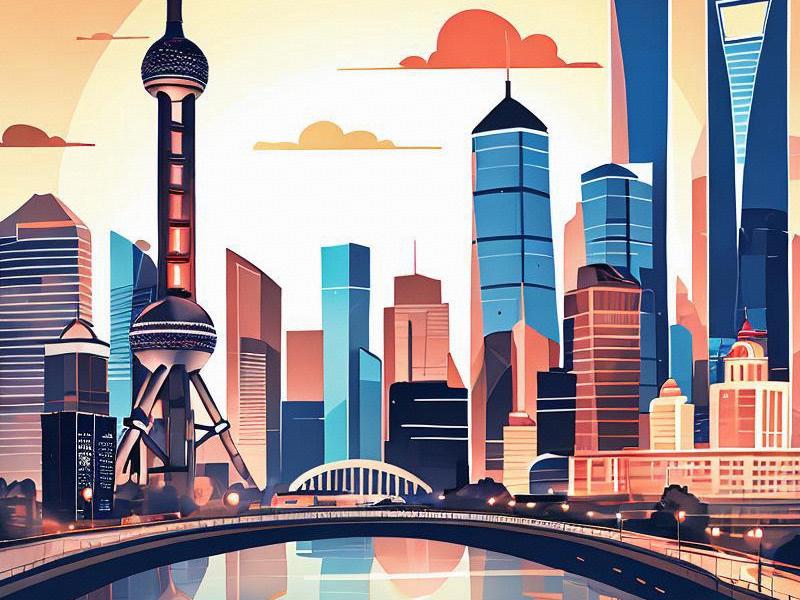As one of the most dynamic cities in China, Shanghai has long been a beacon of economic and cultural innovation. In recent years, the city's entertainment scene has undergone a remarkable transformation, reflecting its status as a global metropolis. This article delves into the vibrant world of Shanghai's entertainment clubs, exploring how they have become a cornerstone of the city's cultural renaissance.

Shanghai, known as the "Paris of the East," has always been a city that thrives on the fusion of tradition and modernity. In recent years, its entertainment scene has taken a dramatic turn, with the emergence of a diverse array of entertainment clubs that cater to a wide range of tastes and preferences. These clubs are not just places to party; they are vibrant hubs of culture, art, and social interaction, reflecting the city's evolving identity.
The entertainment clubs in Shanghai can be broadly categorized into three types: high-end luxury clubs, underground music venues, and themed nightclubs. High-end luxury clubs, such as the iconic MOON Club and the newly opened Shanghai Sky, offer a sophisticated and exclusive experience. These clubs feature state-of-the-art sound systems, world-class DJs, and opulent interiors, attracting a clientele that values exclusivity and quality.
Underground music venues, on the other hand, cater to the city's burgeoning music scene. Places like The Shelter and The Womb are known for hosting live performances by both local and international artists, ranging from electronic music pioneers to indie rock bands. These venues provide a platform for emerging talent and foster a sense of community among music enthusiasts.
Themed nightclubs, such as the vampire-themed Vamp Bar and the futuristic-themed Club 88, offer a unique and immersive experience. These clubs often feature elaborate decorations, themed cocktails, and specialized entertainment, creating a distinct atmosphere that sets them apart from traditional nightclubs.
The rise of Shanghai's entertainment clubs is closely tied to the city's broader urban development and cultural policies. As Shanghai continues to grow and modernize, the government has invested heavily in cultural infrastructure, including theaters, museums, and music venues. This investment has created a fertile environment for the entertainment industry, attracting talent and investment from around the world.
上海龙凤419自荐
One of the key factors driving the growth of Shanghai's entertainment scene is the city's young and cosmopolitan population. With a significant portion of its residents under the age of 35, Shanghai boasts one of the youngest populations in China. This demographic is highly receptive to new trends and experiences, making it a prime market for entertainment venues.
The city's cosmopolitan nature also plays a crucial role. Shanghai has long been a melting pot of cultures, with a history of attracting immigrants and expatriates from around the world. This cultural diversity is reflected in the entertainment scene, which offers a wide range of international cuisines, music genres, and artistic expressions.
The impact of Shanghai's entertainment clubs extends beyond the nightlife. They have become important cultural landmarks, contributing to the city's reputation as a global cultural hub. The clubs host a variety of events, including art exhibitions, fashion shows, and charity fundraisers, further enriching the cultural fabric of the city.
Moreover, the entertainment clubs have a significant economic impact. They generate substantial revenue through ticket sales, food and beverage services, and merchandise. Additionally, they crteeaemployment opportunities for hundreds of people, from DJs and bartenders to event planners and security staff.
爱上海419
However, the rapid growth of Shanghai's entertainment scene has also brought challenges. One of the main concerns is the issue of noise pollution. The loud music and late-night activities of entertainment clubs can disturb nearby residents, leading to conflicts and complaints. To address this issue, the city government has implemented stricter regulations on noise levels and operating hours, aiming to strike a balance between the needs of entertainment venues and the well-being of residents.
Another challenge is the potential for over-commercialization. As the entertainment industry becomes more lucrative, there is a risk that some venues may prioritize profit over quality and authenticity. This could lead to a homogenization of the entertainment scene, reducing its diversity and appeal. To counter this, many venues are focusing on creating unique and memorable experiences that differentiate them from competitors.
Despite these challenges, the future of Shanghai's entertainment scene looks promising. The city's continued urban development and cultural policies are expected to provide further impetus for growth. Additionally, the increasing popularity of live streaming and digital platforms is opening up new opportunities for entertainment venues to reach a broader audience.
One of the most exciting developments in Shanghai's entertainment scene is the rise of hybrid venues. These venues combine elements of traditional nightclubs with other activities, such as art galleries, restaurants, and coworking spaces. Examples include the LOFT in Jing'an and the The Bund 1885 in Huangpu. These hybrid venues offer a multifaceted experience, appealing to a diverse range of visitors and blurring the boundaries between different types of entertainment.
上海娱乐联盟
The integration of technology is another trend shaping the future of Shanghai's entertainment scene. From virtual reality (VR) experiences to AI-powered personalization, technology is enhancing the visitor experience and creating new opportunities for innovation. For instance, some clubs are using VR to transport guests to different environments, while others are leveraging AI to curate personalized playlists and recommendations.
In conclusion, Shanghai's entertainment clubs are at the forefront of the city's cultural renaissance, reflecting its dynamic and innovative spirit. They offer a vibrant and diverse range of experiences, contributing to the city's reputation as a global cultural hub. While challenges such as noise pollution and over-commercialization need to be addressed, the future of Shanghai's entertainment scene looks bright, with continued growth and innovation on the horizon.
As Shanghai continues to evolve, its entertainment clubs will play an increasingly important role in shaping the city's cultural identity. By embracing diversity, fostering innovation, and addressing challenges proactively, these venues will not only enhance the visitor experience but also contribute to the broader cultural and economic development of the city.